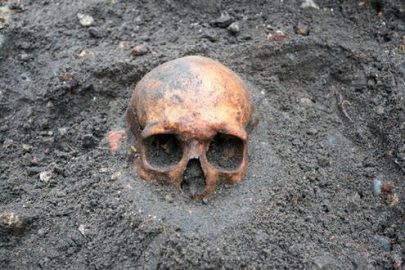The dead are never really gone. In archaeology and the forensic sciences, that’s quite literally true. Though people tend to think that mortal remains quickly turn to nothing, in reality, the human body is very resilient and can persist for hundreds and even thousands of years.
Most people will have heard of Egyptian mummies, and how even as long ago as 2600 BC, people knew how to preserve their dead so successfully that they have endured until the present day. But even without human help, ancient human remains in South America have persisted as the climate dries the body out and slows down bacterial decay. Caves in less extreme environments can be dry and cold enough to preserve human remains, such as Schmerling in Belgium, which was where the first bones of our Neanderthal relatives were discovered.
Today, the so-called rainbow valley on the north side of Mount Everest displays the bodies of climbers who have died trying to reach the Himalayan peak. Their brightly coloured jackets give the place its name and the extreme cold has stalled decomposition.
But even when bodies decompose completely, the trace of a life can still be found. As archaeologists and forensic scientists, we rely on this to understand how lives suddenly end and the world in which a person lived and died. But these stories aren’t just academic – our research can help support investigations into atrocities and missing people, when sometimes the only witness to a crime can no longer speak for themselves.
The truth is never buried
Decomposition starts almost immediately after death, with the end of normal bodily functions and the spread of internal bacteria. These processes cause the tissues of the human body to rupture and break down. Forensic pathologists use these observations to calculate the time since death. Once the soft tissues have fully decomposed, all that remains is the skeleton. The skeleton and teeth are much more robust. Although they undergo a number of subtle changes after death, they can remain intact for many years.
Read more HERE
Ask me anything
Explore related questions





